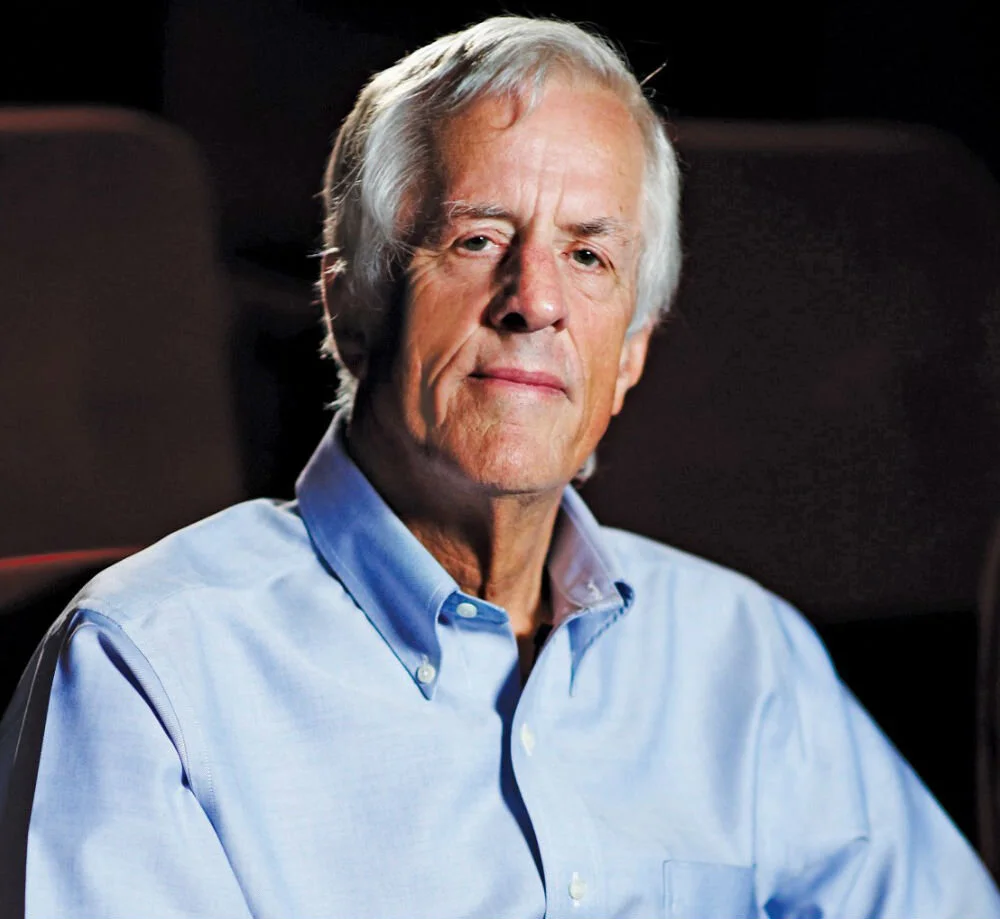63 Up: Ace Doc Series Following Kids through Adulthood (and Beyond) Is Genuine Reality TV
By Liam Lacey
Rating: A
Michael Apted’s documentary 63 Up is the ninth installment of a series of films — or sort of one long film — begun in 1964 with 14 English seven-year-olds and continued every seven years. The project is a unique social experiment which we can all participate in, in a way, dipping back in time to connect with old acquaintances and, inevitably, measuring our own ups and downs in the interval.
Filmmaker Michael Apted.
If you’re new to the series, 63 Up is at least half old material, as we look back on who prospered and who floundered, who is better-looking, sick or healthy, cheerful or fearful, and how all this measures against the children they once were.
The quintessentially English series which originally intended as the social determinism of the English class system (the reason my mom and dad emigrated to Canada, I’ve been told). The series was inaugurated as a 40-minute television special, Seven Up! by an outsider: Canadian filmmaker and novelist Paul Almond, who later returned home to direct a half-dozen films, including Isobel, with his then-wife Geneviève Bujold.
Apted, in his early twenties, worked as an assistant on that first film. But by the second, 7 Plus Seven, he had put his imprint on the series. His voice-over, off-camera interview style can sound a little paternalistic but he’s a sympathetic and curious interviewer. The Up series is certainly not the only thing he’s known for. A prolific filmmaker, he also directed Coal Miner’s Daughter and the Bond film, The World Is Not Enough. But the name Michael Apted is as synonymous with this documentary about life journeys as Michael Bay’s is with blowing stuff up.
In the more than half-century since that first documentary, the English class system has reconfigured and weakened in the Boomer era. That transformation was in full swing by 1964 when a generation of people with unschooled accents (“yeah, yeah, yeah”) achieved wealth and global cultural influence. The series, too, has changed its focus over the decades.
What started out as a political series has become more existential, a documentary about measuring and contemplating life “passages” to use Gail Sheehy’s phrase. An added complication is the so-called “observer effect:” How does this self-scrutiny, this business of becoming a pre-reality-TV star, from childhood on, affect the subjects’ lives? Cab driver Tony recalls how he was driving astronaut Buzz Aldrin when a man approached seeking an autograph — not from Aldrin, the second man on the moon, but from the cabbie who he recognized from the telly. Now Tony makes spare money working as a movie extra.
Naturally, subjects move from middle-age into their sixties under the shadow of mortality. Nick, a Yorkshire farm boy who became a physics professor in the United States, has recently received a cancer diagnosis. Another subject, Lynne, a librarian and devoted literacy advocate, has died and her colleagues renamed the school library.
But there’s also evidence here that the years can bring peace. Symon (the only person of colour among the original children) and his friend Paul got to known each other while being raised in a “children’s home.” After unstable early adult lives, both have grown up to be thoughtful, sensitive men, deeply bonded to their families.
Age also brings confidence: Jackie, one of three girls picked from the same working-class primary school (of the original 14 children, only four were girls) bluntly reminds Apted that the questions he asked her about marriage and family when she was an edgy 21 were blatantly sexist.
Finally, what of England, the other life-battered subject of the film? None of the 11 subjects who are interviewed at 63 support Brexit, which puts them in the minority of English voters. Does that suggest a bias in the children selected? Or perhaps that the experience of the program has inoculated the subjects against the worst idiocies of the media? More studies, as they say, are needed: 70 Up would be a treat, though by then, director Apted would be 85, and perhaps considering his own retirement.
63 Up. Directed by Michael Apted. Opens December 20 at Toronto’s Hot Docs Cinema and in Vancouver, and in other cities throughout the winter.

